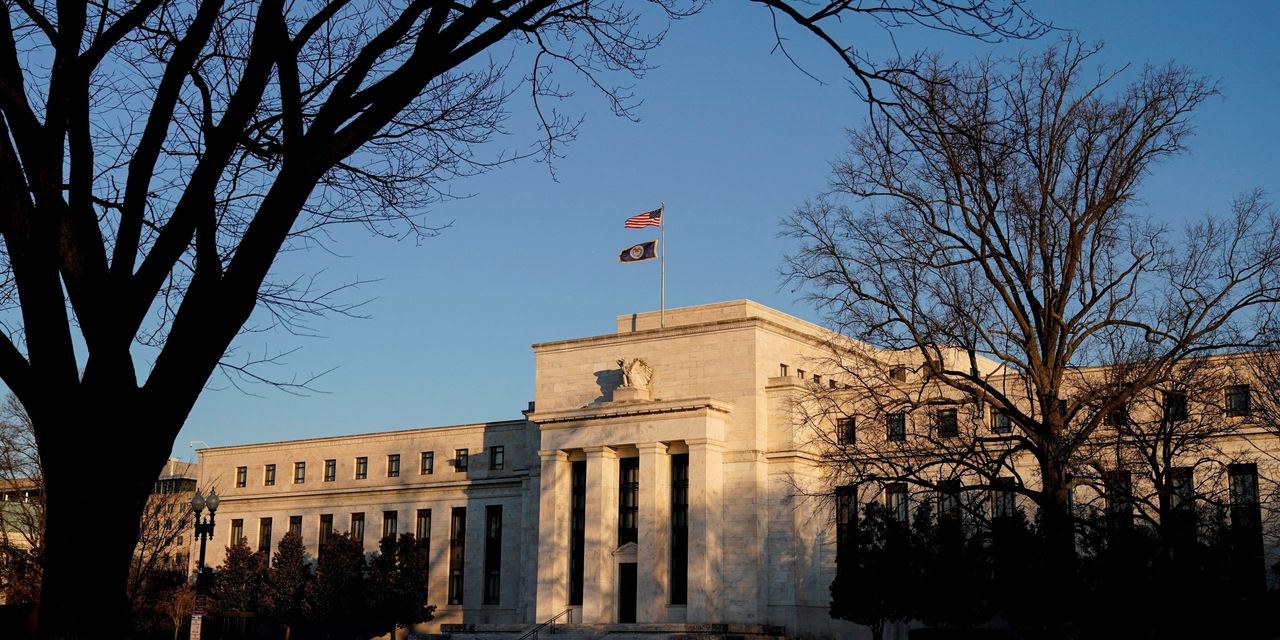

Yields on U.S. government bonds have surged back to their highest levels since 2019, reflecting investors’ growing bets that Russia’s invasion of Ukraine won’t slow the momentum toward higher interest rates.
The yield on the benchmark 10-year U.S. Treasury note settled at 2.139%, up from 2.004% Friday and its highest close since June 2019.
Yields, which rise when bond prices fall, had climbed sharply over the first six weeks of the year as investors ratcheted up their expectations for interest-rate increases from the Federal Reserve. They then fell—with the 10-year yield settling as low as 1.722%—as Russia’s invasion sent cash flowing into safer assets.
But yields have rebounded over the past week, with investors increasingly nervous that the isolation of Russia will add to inflation by boosting commodity prices.
It is hard to say that recent developments “are not inflationary, given where commodity prices are,” said
Leah Traub,
a portfolio manager at Lord Abbett.
While some have thought that higher commodity prices could slow economic growth and therefore make the Fed cautious about raising interest rates, “our view is, that for the U.S., that the inflation impact will be higher than any negative impacts from growth,” she said.
Highlighting the complexity of the current situation, Monday’s increase in yields came as hopes for negotiated settlement between Russia and Ukraine helped drive down oil prices. That was a sign that for many investors, a decline in commodities prices would still make it easier for the Fed to raise rates.
Investors will gain further insight into the Fed’s thinking in a matter of days. The central bank is widely expected to raise short-term rates by a quarter of a percentage point on Wednesday. But it will also release its latest economic forecast and its so-called dot plot showing where individual officials expect rates to head over the next few years.
As of Monday, interest-rate derivatives showed that traders think there is a nearly 70% chance that the Fed will raise rates to at least 1.75% this year, according to CME Group data—up from 31% a week ago and a return to roughly the same position from a month ago. The Fed’s current target for its benchmark rate is between 0% and 0.25%.
Investors, though, are expecting the Fed to sharply slow down the pace of its rate increases next year, leaving short-term rates between around 2% and 2.5%. That is roughly the same peak they reached in the previous economic expansion.
Rising bond yields are likely to be disappointing to many investors, pushing up borrowing costs across the economy and giving investors few places to hide if they are nervous about holding riskier assets such as stocks.
This year has been particularly difficult because prices of both stocks and bonds have fallen, making it difficult for savers to earn positive returns regardless of their investment strategy.
Of concern for investors, yields climbed Monday on Treasury inflation-protected securities, or TIPS, even more than they did on ordinary U.S. Treasurys, a development that often has a negative impact on stock prices.
The yield on the 10-year Treasury inflation-protected security stood at minus 0.821% Monday afternoon, up from minus 0.978% Friday.
Investors pay close attention to TIPS yields because they are a proxy for real, or inflation-adjusted, bond yields, making them arguably a better measure of benchmark borrowing costs than nominal yields.
Echoing a pattern from earlier in the year, Monday’s increase in yields corresponded with a simultaneous decline in stocks valued largely for their future earnings potential, such as those in the technology sector. The ability to get higher risk-free returns from bonds generally makes such companies less appealing to investors.
Write to Sam Goldfarb at sam.goldfarb@wsj.com
Copyright ©2022 Dow Jones & Company, Inc. All Rights Reserved. 87990cbe856818d5eddac44c7b1cdeb8
24World Media does not take any responsibility of the information you see on this page. The content this page contains is from independent third-party content provider. If you have any concerns regarding the content, please free to write us here: contact@24worldmedia.com

Common Mistakes When Using Athletic Field Tarps

High-Performance Diesel Truck Upgrades You Should Consider

Warehouse Optimization Tips To Improve Performance

Fire Hazards in Daily Life: The Most Common Ignition Sources

Yellowstone’s Wolves: A Debate Over Their Role in the Park’s Ecosystem

Earth Day 2024: A Look at 3 Places Adapting Quickly to Fight Climate Change

Millions of Girls in Africa Will Miss HPV Shots After Merck Production Problem

This Lava Tube in Saudi Arabia Has Been a Human Refuge for 7,000 Years

Four Wild Ways to Save the Koala (That Just Might Work)

National Academy Asks Court to Strip Sackler Name From Endowment

Ways Industrial Copper Helps Energy Production

The Ins and Out of Industrial Conveyor Belts